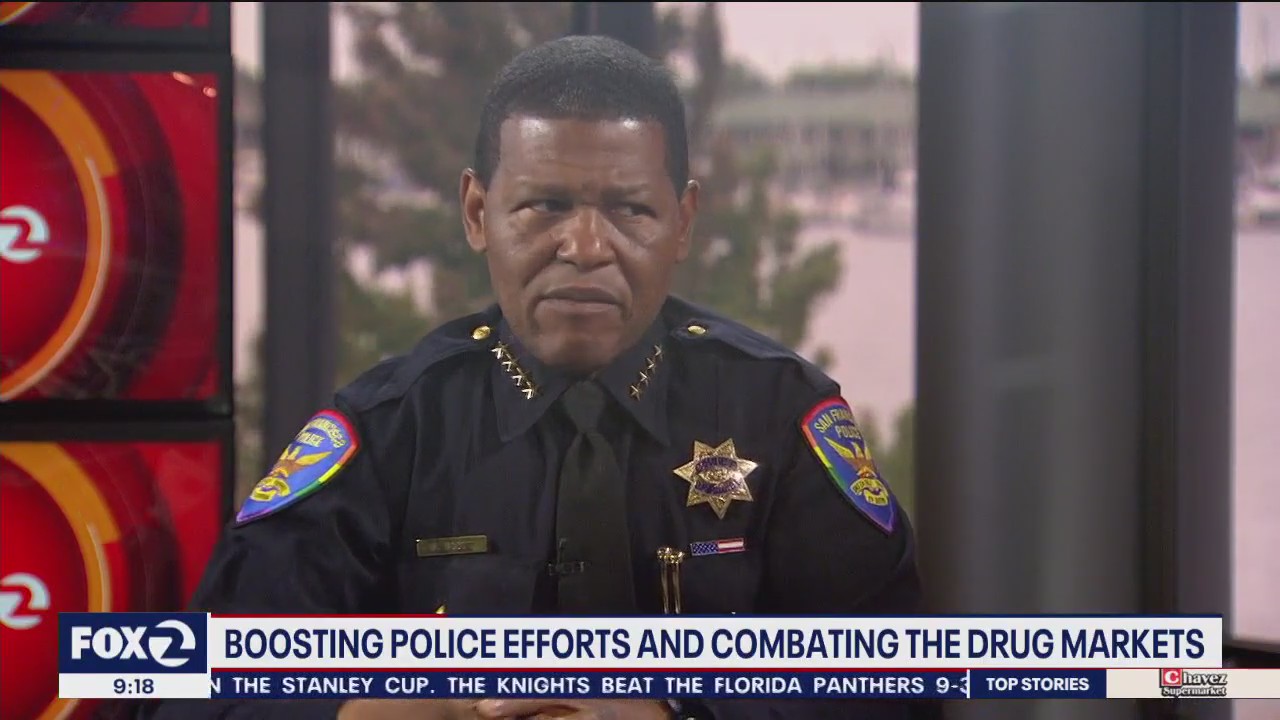'We have to get back to basics of arresting people:' SF police chief defends detaining drug users

San Francisco police chief tries to combat drug markets
San Francisco Police Chief Bill Scott discusses the arrests of people at drug markets.
SAN FRANCISCO - San Francisco Police Chief Bill Scott on Wednesday defended the mayor's controversial policy to arrest drug users to get them into treatment programs.
Speaking in a one-on-one interview with KTVU, Scott said he is on board with Mayor London Breed's direction to use public intoxication laws to arrest people who are high on drugs, detain them to sober up in jail and then offer them services.
He said that to date, 41 people have been arrested under the so-called "Intoxication Detention program," and only "three or four" of them are from San Francisco. He did not state where the others were from. The San Francisco Sheriff's Office has also been arresting people under six health and safety codes related to public intoxication and drug possession.
"We don't want people coming to our city to buy drugs, or we don't want people in our city to be on the streets buying and using drugs," Scott said. "So there has to be some accountability to that. And we have to get back to just the basics of arresting people."
That's because what's happening on the streets with open drug use is "disturbing," Scott said.
And if San Francisco has the reputation that it's easy to get drugs and nothing will happen to you for it, Scott said it's his job to help change the narrative of this "easy environment."
"It's about if you are using openly, using drugs on the streets, ingesting drugs in the street, or you're so intoxicated that you are a danger to yourself or a public safety risk, we have to address that issue," Scott said. "The police department plays a huge role in that and we should not back away and be ashamed to say that it's not OK for you to do that. And if you come to our city to do that, you will get arrested."
Scott quickly added, however: "I want to be clear that I'm not saying that the arrest is the solution to addiction and those types of issues."
There are plenty of critics of this plan.
Supervisor Dean Preston on Tuesday said that Black, brown and indigenous people continue to be impacted by "the racism and criminalization that have been the hallmark of federal US drug policy for the past several decades."
Scott acknowledged that he knows "not everyone is in favor of this strategy," but he countered that 67% of those arrested have been white – simply because that's the demographic makeup of who is out using drugs.
Preston had other complaints with this approach, too.
He cited studies that show "punitive policies have not been shown to be effective at reducing overdose deaths, while incarceration is known to significantly increase risk of dying of drug overdose."
"Coerced treatment doesn’t work," Dr. Daniel Ciccarone, an addiction medicine specialist at UCSF, told the Chronicle. Instead, he said, research has shown that recent release from short-term incarceration is the No. 1 predictor of increased overdose risk.
Instead of incarceration, Preston pushed the mayor to fulfill her administration's commitment last year to open a wellness hub, a service center for drug users, the Chronicle reported.
Scott also countered anecdotally that some people who get arrested will be able to stay off the streets long enough to detox.
"They get help when they're in custody and they are offered help when they're out of custody," he said.
According to the Chronicle, as of June 6, no one so far has asked for such help.


